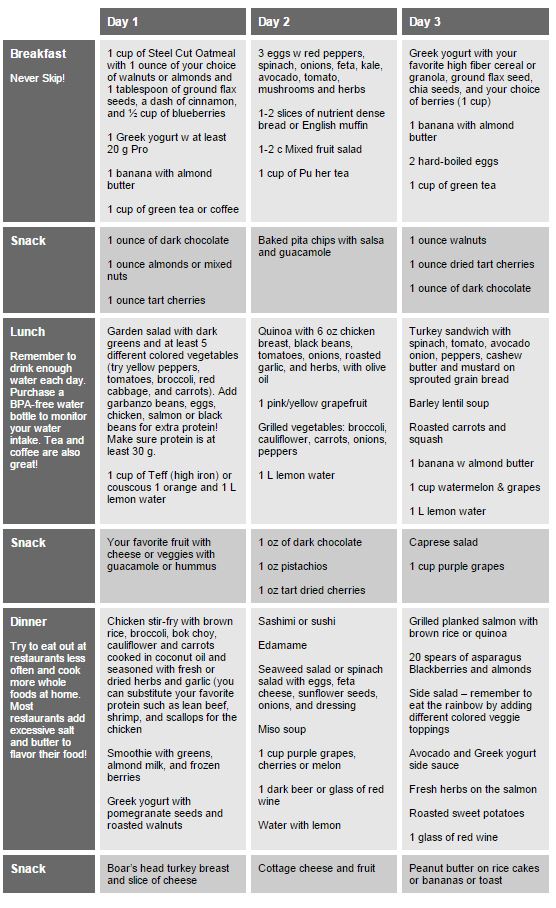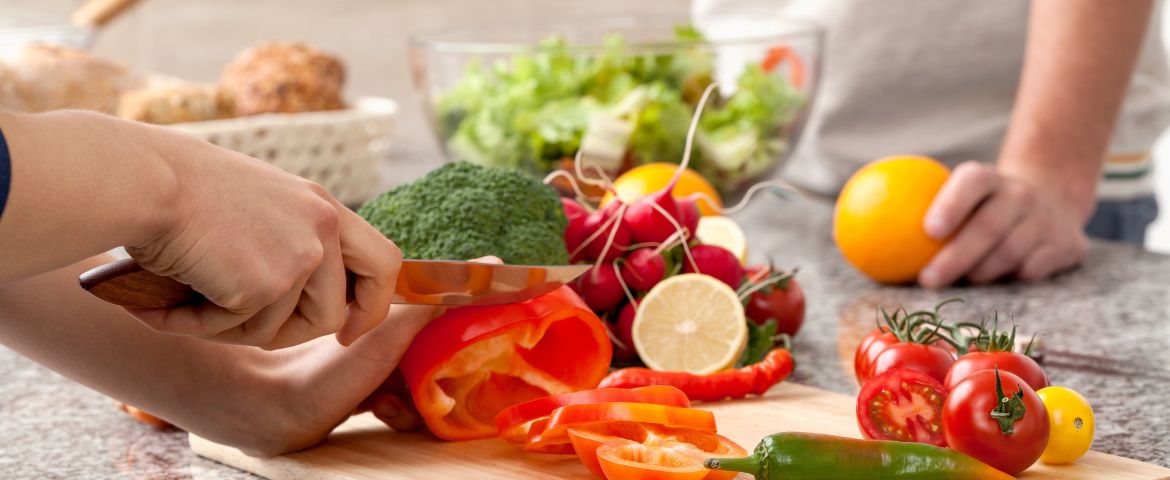By: Lisa McDowell, MS, RD, CSSD
Superstitions and good luck meals are commonplace. I am frequently asked to describe what type of food the players eat in a typical day so I thought it would be fun to share what our professional hockey players eat. Of course, we have special menus, secret recipes, power ingredients and other favorites we can’t share, but these three-day menus can help everyone understand what a well-balanced day looks like to feel your best.

Secrets for Success:
Hockey Players view their meals as an opportunity to fuel each day with energy-boosting, nutritious and flavorful meals. Take a peek at our three-day sample menus.
- Watch your intake of processed foods. Read labels and limit what you purchase in a box!
- Use generous amounts of fresh or dried herbs and spices for flavor.
- Eat a variety of fruits and vegetables and fill half of your plate with them at every meal.
- Eat a variety of whole grains- replace refined grains with whole grains. If your iron is on the lower side, try to add a daily serving of teff.
- Eat dairy products fortified with vitamin D.
- Only buy Wild Alaskan salmon – never farm raised.
- Choose grass-fed lean beef and poultry without added hormones and antibiotics. Purchase organic.
- Incorporate super foods like Greek yogurt, sweet potatoes, dark chocolate (70 percent), tea, cherries, berries, spinach, beans, oatmeal, spices, herbs, deep pigmented fruits and veggies, flax seeds, chia seeds, quinoa, edamame, teff, eggs, Alaskan salmon, sardines, garlic, onions, nuts, etc.
- Eat the rainbow – at least 10 different fruits and veggies including something red, purple, blue, green, yellow, orange, white, brown, and black.
- If taking vitamin D3, make sure to take with food to increase absorption. Fat-soluble vitamins need a source of good fat for absorption (olive oil, nuts, avocado, etc).
- Eat something with vitamin C when eating meat to increase iron absorption.
- When eating out, order two extra sides of veggies (preferably sautéed spinach, kale, arugula, etc as one choice)
- Eat within 45-60 of hard exercise. Need a mix of protein and carbs. Enjoy a recovery smoothie or snack within 10 minutes of getting off the ice.
- If using supplements, use only NSF certified.
- Follow 80/20 rule. 80 percent good calories 20 percent less functional – for example, glass of wine, bowl of ice cream, snack chips.
- Follow 90/10 in playoffs. 90 percent great fuel, 10 percent treats.
- 10 hours of sleep is needed for professional athletes. The harder you work your body the more recovery time needed to repair damage.
- 1 oz tart cherry juice per day – I love King Orchards from Traverse City!
- Aim for at least one avocado, 2 oz nuts, liberal use of olive oil every day to help with metabolic efficiency, and support of hormones needed to maintain muscle mass.
- Limit caffeine at night.
- Enjoy your meals, laugh, celebrate and taste your food mindfully.
About the Author: Lisa McDowell, MS, RD, CSSD is a board certified specialist in sports dietetics and the team dietitian for the Detroit Red Wings. She has worked with professional, collegiate, and Olympic athletes since 1996. Most recently, Lisa worked with Team USA athletes at the 2012 Summer Olympic Games in London.


